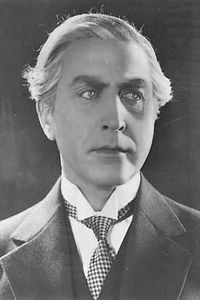Fritz Alberti, a distinguished and accomplished German actor, embarked upon a varied and multifaceted career trajectory, which commenced with his academic pursuits at the esteemed Technical University of Berlin, where he pursued studies in the field of construction.
By the year 1906, the artistic inclinations of Alberti began to supersede his other pursuits, ultimately leading him to dedicate himself to a career in the performing arts. Specifically, he made the decision to embark on an acting career, marking the start of a journey that would see him take to the stage for the first time in Kassel.
Subsequently, his talents were showcased at the prestigious National Theater in Mannheim, a venue that would serve as a launching pad for a successful and storied acting career. As his career progressed, Alberti would go on to assume a wide range of roles in numerous productions, solidifying his position as a talented and versatile performer.
Alberti's multifaceted talents flourished in the 1920s, as he effortlessly transitioned from the world of theater to the silver screen, becoming a ubiquitous presence in German cinema. During this remarkable period, he demonstrated his incredible work ethic by appearing in an astonishing ten films in the year 1928 alone, showcasing his remarkable range and versatility as a performer. Concurrently, Alberti continued to refine his craft on the stage, gracing esteemed venues such as the Theater am Kurfürstendamm with his exceptional presence and artistry.
As the Nazi Party's influence and popularity grew, Alberti made the significant decision to join the NSDAP on April 1, 1933, marking a pivotal moment in his career and life. Upon his induction, he was appointed to the esteemed position of chief treasurer of the NSBO film specialist group, a role that granted him immense responsibility and authority. Furthermore, he was entrusted with the critical task of serving as the head of film records, a position that required his meticulous attention to detail and organizational skills.
In this capacity, Alberti was responsible for overseeing the allocation of smaller roles within the film industry, ensuring that every aspect of the production process was properly managed and executed. Additionally, he was tasked with the duty of reprimanding artists who failed to conform to the party's rigid standards, a task that required a delicate balance between artistic expression and political loyalty.
Moreover, Alberti played a crucial role in managing requests for financial support from the Goebbels Foundation "Künstlerdank", a prestigious organization that provided vital funding to artists and filmmakers who were deemed worthy of support. His expertise and experience in this area enabled him to navigate the complex web of bureaucratic red tape, ensuring that deserving artists received the financial assistance they needed to pursue their creative endeavors.
After the conclusion of World War II, the renowned Italian actor, Luigi Alberti, made a deliberate decision to refrain from resuming his theatrical career, instead electing to redirect his energies and expertise towards the realm of voice acting and acting pedagogy.




















